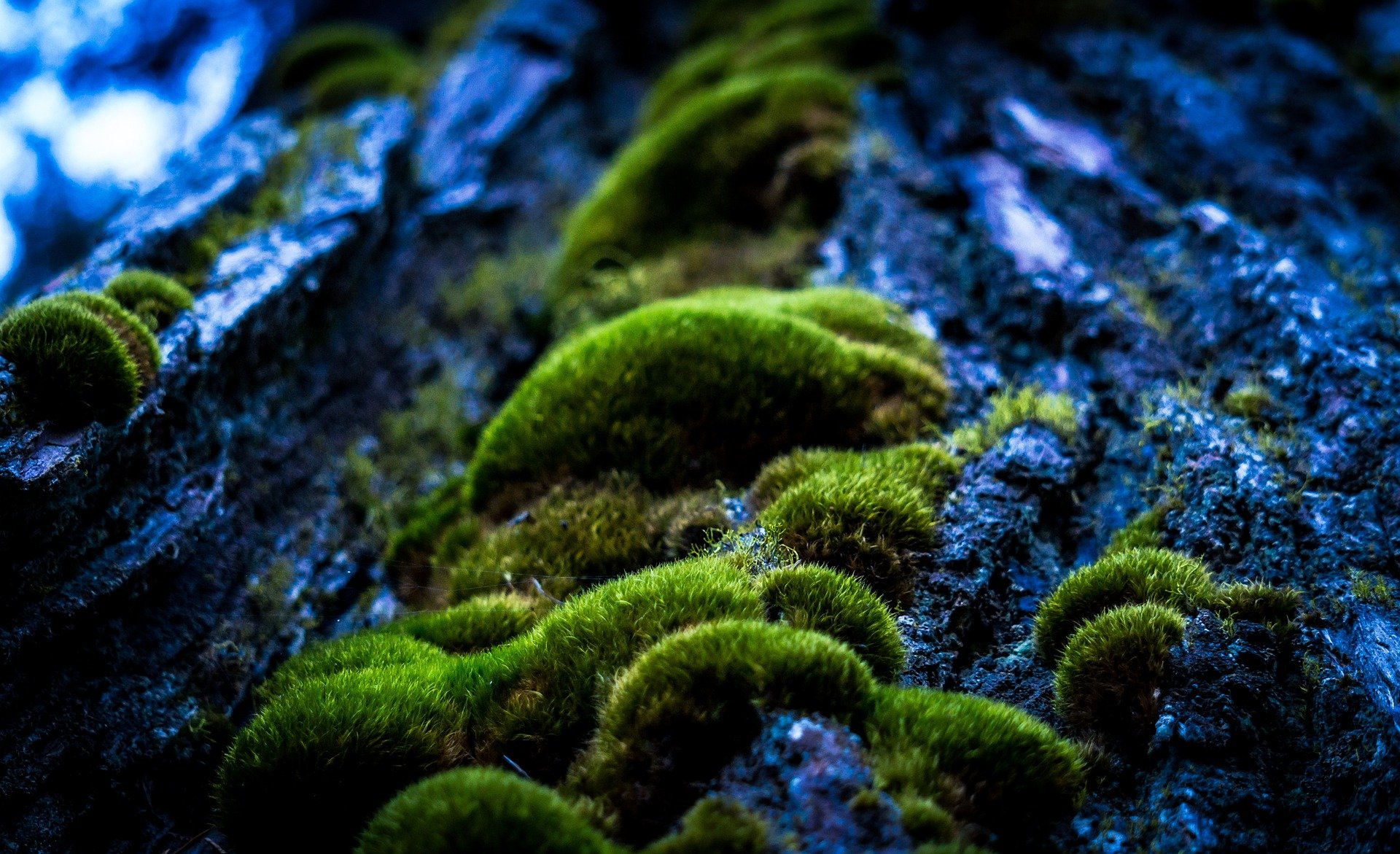Moss can be tiresome to deal with, especially here in Camas, Washougal, and Vancouver, Washington, where moisture is abundant. There are several factors that promote the growth and spread of moss in your yard and throughout your landscape. In a past blog post, we discussed treating moss organically. However, in this blog, we will discuss what causes moss.
What is Moss?
In order to understand what causes moss, it may be helpful to know what moss is exactly. Moss is a “bryophyte,” which is the technical term that means it is a small, green, flowerless plant. Bryophyte encompasses all mosses, as well as liverworts and hornworts of which there are over 15,000 species combined. Moss is a rootless plant that is able to grow in areas that many other plants are not (i.e. on rocks, in poor soil conditions, etc.). Part of this is due to the fact that mosses spread through spore transmission. Moss flourishes best in shady, damp conditions. Now that we have a little background on what moss is, lets discuss what causes moss to grow.
Poor Soil Conditions
Moss flourishes best in areas that other plants cannot survive. Plants growing in poor soil conditions oftentimes have trouble competing with moss in these areas. Soil with poor drainage and clay or rocky soil make it difficult for plants to grow and allows moss to take over the area. Furthermore, pH imbalance may cause your plants to be unable to absorb the proper nutrients, which allows moss to take hold. Ensuring your lawn is properly fertilized will help stave off the growth and spread of moss.
Moisture
As mentioned above, poor drainage or an overabundance of moisture will allow moss to grow and spread quickly. Moss is able to grow on most any surface as long as moisture is present. Soil that doesn’t quickly or fully drain will easily allow moss to grow within your lawn. Pavers or cement that is constantly moist from rain or sprinklers will allow moss to grow in these areas as well. Furthermore, water runoff in any of these areas will help to carry and spread moss spores to other areas.
Shade
Moss flourishes best in shaded areas. This has a lot to do with moisture and evaporation; if areas of your yard are mostly shaded, then water in these places is less likely to properly or fully evaporate. Therefore, shaded areas oftentimes develop moss, which can be difficult to remedy without gaining more access to sunlight.
Soil Compaction
Soil compaction can play a role in the development and spread of moss as well. Plants with root systems have a hard time growing in compacted soil. Luckily for mosses, they do not have this problem and will happily grow throughout areas of compacted soil. Relieving this compaction will immensely help in remedying a moss problem. The best way to relieve compaction in your lawn is to aerate.
Urban Eden Landscaping has all of the proper skills and knowledge to help eliminate your moss problems. Contact us today or fill out our FREE estimate request form.

